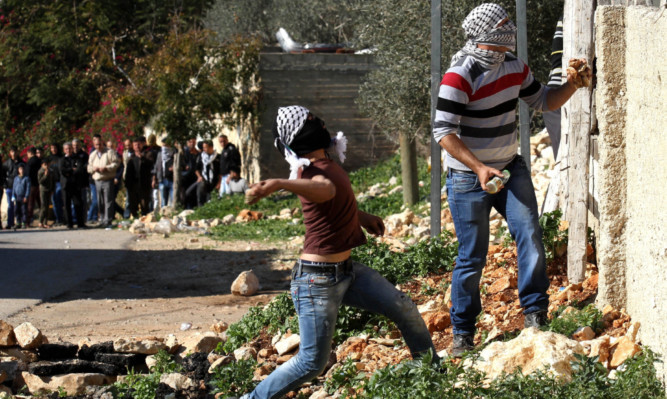A Dundee University educational psychologist is helping Palestinian children in Nablus recover from post-traumatic stress disorder over the internet.
More than half of the population of Nablus, one of Dundee’s twin towns, are under 20 years old and have grown up in the shadow of conflict.
Studies have found that both Palestinian and Israeli children have high levels of post-traumatic stress disorder, which can leave them reliving moments of terror.
Dr Ian Barron from Dundee University has been working with Dr Ghassan Abdullah at the Centre for Applied Research in Ramalla and the Children and War Foundation in Bergen to train counsellors in Palestine so they can help children overcome their conditions.
The Dundee-Nablus Twinning Association (DNTA) is now trying to crowdfund £2,200 to continue its work.
One anonymous donor has already pledged £300, which they say is their entire winter fuel allowance.
Dr Barron said: “DNTA’s fundraising efforts are enabling training by a live Skype link between Dundee and Nablus.
“We will be using a manual produced by the Children and War Foundation, which teaches children techniques to cope with multiple and cumulative traumatic losses.
“Children over there have experienced awful horrors by a very young age.
“These include witnessing the death of a loved one, seeing mutilated bodies, family members taken away to detention, loss of friends and pets.
“They also suffer less visible losses such as schooling and identity.
“All these losses can lead to flashbacks, hyper-arousal, sleeplessness, bed wetting, lack of concentration, aggression and numbing.”
School counsellors in Nablus will be taught recovery techniques from the manual.
These include creating a memory box that helps grieving children learn to live with their loss over time.
Other skills give children techniques to be able to sleep better, learn to feel again, to rebuild self-esteem, talk out their grief, re-claim happy thoughts and have develop effect strategies for relaxation.
The current project builds on successful field trials that have benefited children throughout Nablus, the West Bank and Gaza.
Dr Barron added: “It is our determination that in a few years every child in Nablus will have been through the trauma healing programme and that children in our twinned city can reclaim their lost childhood.”
The DNTA is fundraising through its website www.dundee-nablus.org.uk.
